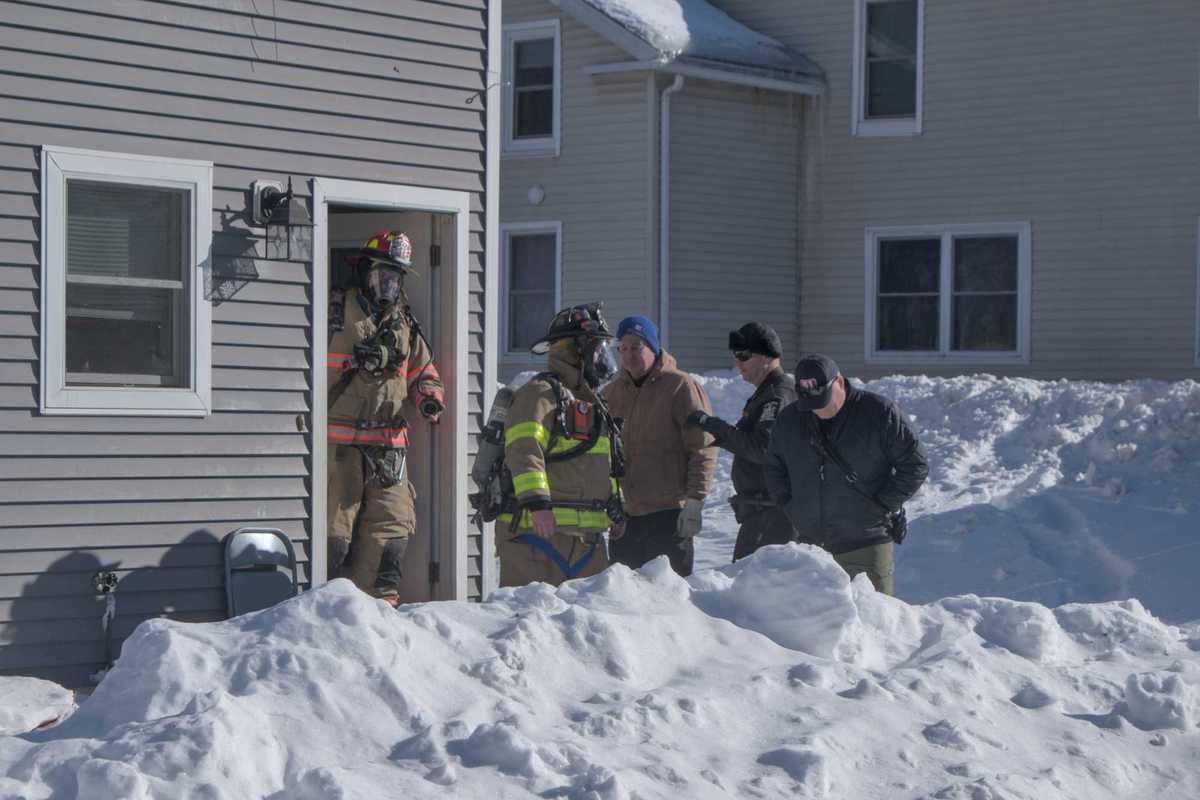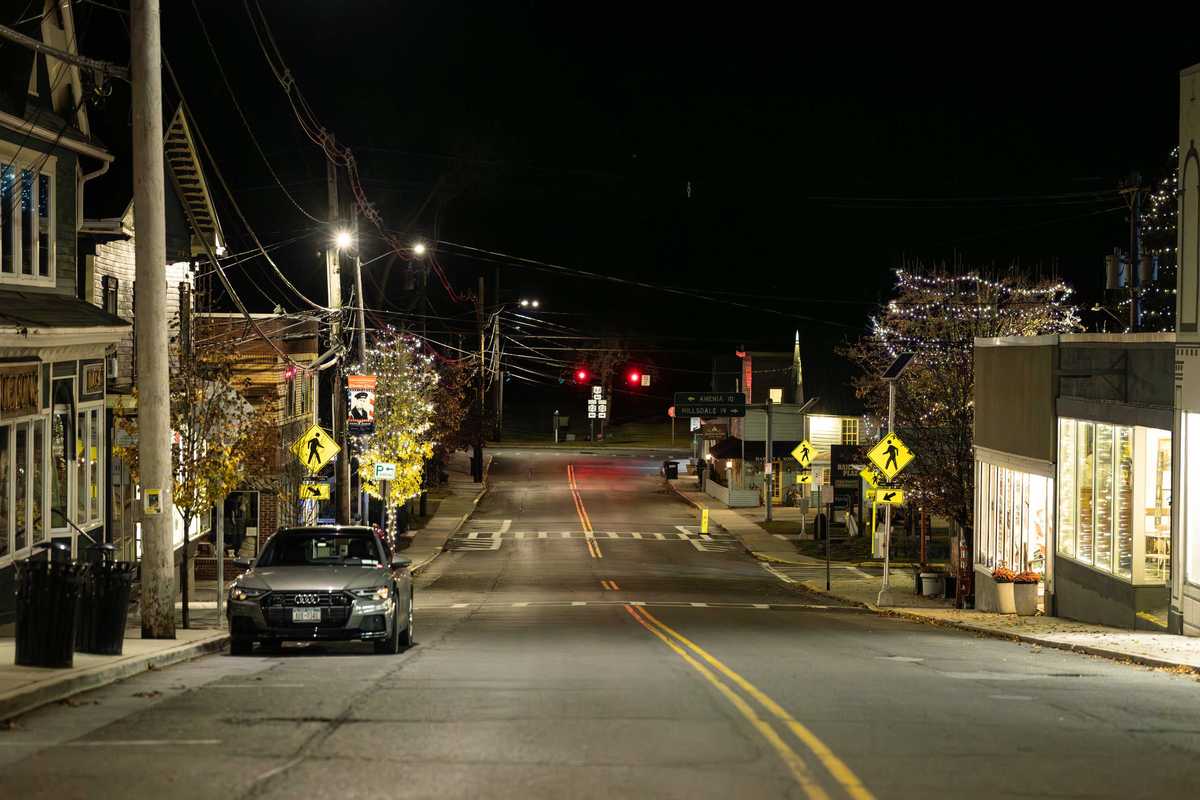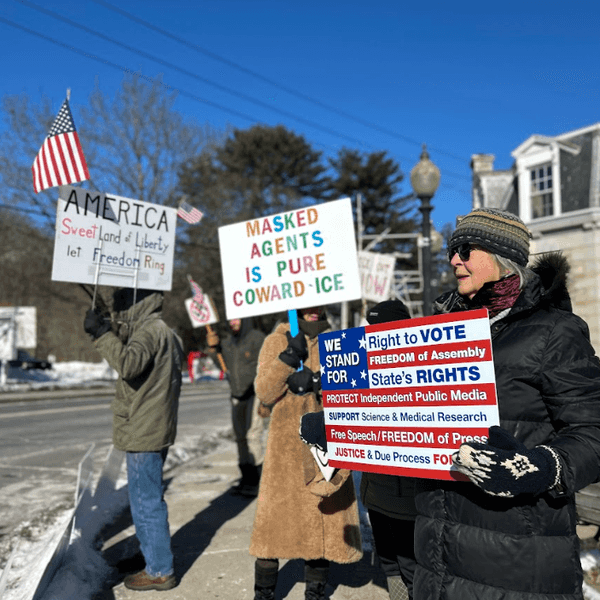Latest News
Drivers should expect more police on the roads this weekend as law enforcement warns of ramped-up DWI check-points over Super Bowl weekend.
Photo by Aly Morrissey
Law enforcement is expected to ramp up DWI check-points across the region this weekend.
Across Dutchess County, local law enforcement agencies will take part in a “high-visibility enforcement effort” during Super Bowl weekend aimed at preventing drivers from operating vehicles under the influence of drugs and alcohol. Increased patrols and sobriety checkpoints are planned throughout the county from Sunday, Feb. 8, through Monday, Feb. 9.
In a statement, Dutchess County Executive Sue Serino emphasized the need for safe roads and thanked law enforcement who “work year-round to keep our neighborhoods safe.” She added, “Make the winning play during Super Bowl weekend and plan for a safe ride home.”
Nationwide, traffic fatality data indicates Super Bowl Sunday is one of the deadliest days of the year for impaired driving, with a significantly higher number of alcohol-related deaths than on typical Sundays.
During the Jan. 29 Village Board meeting, trustees voted to sign the annual STOP-DWI agreement with Dutchess County, part of a statewide effort to keep dangerous drivers off the roads. Similar efforts also take place around Memorial Day, Independence Day, Labor Day, Halloween, Thanksgiving and during the December holiday season.
Millerton Police Chief Joseph Olenik said his department typically participates in all DWI check-points, but will not this weekend because of staffing issues. He said that does not mean county and state police will not be active in the Millerton area.
Keep ReadingShow less
Students wore black at Housatonic Valley Regional High School Friday, Jan. 30, while recognizing a day of silence to protest Immigration and Customs Enforcement.
Mia DiRocco
FALLS VILLAGE — In the wake of two fatal shootings involving Immigration and Customs Enforcement agents in Minnesota, students across the country have organized demonstrations to protest the federal agency. While some teens have staged school walkouts or public protests, students at Housatonic Valley Regional High School chose a quieter approach.
On Friday, Jan. 30, a group of HVRHS students organized a voluntary “day of silence,” encouraging participants to wear black as a form of peaceful protest without disrupting classes.
The idea was spearheaded by junior Sophia Fitz, who said she wanted a way for students to express their concerns while remaining in school.
“What really inspired me was that I was feeling very helpless with these issues,” Fitz said. “Staying educated with what’s going on in not only our country but globally can be very stressful as a teenager. Kids right now are feeling very hopeless and want to do something, but don’t know how.”
Teachers Peter Verymilyea and Damon Osora were on board with the idea early on, describing it as a peaceful and respectful way for students to express their beliefs.
Assistant Principal Steven Schibi also backed the effort, emphasizing the importance of student participation.“I think it’s important for us to listen to students,” he said. “And they have to learn how to have a voice in such a way that it’s not disruptive.”
After discussions with Superintendent Melony Brady-Shanley and Principal Ian Strever, school administrators agreed that participation would be optional and that students could choose whether to wear black or not.
Schibi, along with several staff members, participated in the movement by wearing black themselves. Math department chair Kara Jones was among the participating teachers. “Everybody deserves their voice, so I’d rather do the day of silence than everybody stay home,” she said.
Among HVRHS students who supported the protest, at least one cited concern for friends affected by immigration enforcement.
Sophomore Peyton Bushnell said he felt anxious, fearing for the safety of friends and acquaintances. “I think it’s all really messed up,” Bushnell said. “I have a lot of Hispanic friends, and I worry if there’s ICE in Great Barrington, if they came here [and] deported my friends. I can’t even imagine.”
Bushnell said Fitz’s initiative encouraged him to speak more openly about the issue.
Senior Molly Ford echoed that sentiment. “I think it’s a peaceful way to protest and I think it’s the best way to do so,” Ford said.
Many students wore black to show support, and senior Victoria Brooks shared her thoughts on what it meant to her. “It means following along in a form of advocacy alongside other students,” Brooks said.
Some students declined to comment when asked about the protest. Others said they were unaware the protest was taking place. Three seniors interviewed during lunch said they would have participated had they known, calling it a “neat idea.”
Not all students were convinced of the protest’s impact. A group of juniors questioned whether it would make a difference.
“I think that it is good that we’re trying to do something,” one student said. “But I’m not sure how much the silence aspect of it will help, but I think that it’s good that we’re trying.”
Some students questioned the efficacy of the protests, including a group of seniors who offered their opinions. They expressed the belief that the protests were “pointless,” and that President Donald Trump probably didn’t even know that HVRHS existed.
“I just don’t think it’s the best way to go about it. Like, what is us being silent and wearing black gonna do,” one of the seniors said.
Senior Cohen Cecchinato voiced his opposition to the protests in another interview.
“The staying silent, I think, is for the lives that were lost, which I agree with,” Cecchinato said. “But I think that wearing black, like the movement that it’s behind, the people that are putting it into place in our school are doing it because it’s like the ‘F ICE’ movement or the abolish ICE movement, which I think is just wrong.”
Other students said they believed political protests don’t belong in school.
“I just don’t think we should bring politics into school,” one senior said. Another added, “I think it’s causing … a really big divide and people are using it to be advantageous to themselves and their own beliefs.”
However, one senior expressed a sharply critical view of the protest. Senior Ashton Osborne dismissed students who chose to wear black or participate in the demonstration and criticized organizer Sophia Fitz. He also said he strongly supported the federal immigration agency and added that if he were old enough, he would want to work for ICE.
The comments reflected a minority viewpoint among students.
Mia DiRocco, Hannah Johnson and Peter Austin are seniors at Housatonic Valley Regional High School and participants in The Lakeville Journal’s student journalism program, which produces HVRHS Today.
Keep ReadingShow less
A Google Street View image of the former Pep Boys warehouse on Elizabeth Drive in Chester, New York, where the U.S. Department of Homeland Security plans to
maps.app.goo.gl
A proposed deportation processing center in Chester, New York, has sparked widespread backlash from local residents and advocates across the Hudson Valley.
The Department of Homeland Security issued a public notice on Jan. 8 outlining the plan, which calls for Immigration and Customs Enforcement to purchase and convert a warehouse at 29 Elizabeth Drive in Chester “in support of ICE operations.” The facility, located in Orange County, is a former Pep Boys distribution warehouse that was previously used to store tires and auto parts.
More than 400 people appeared at the Chester Village Board meeting on Jan. 12, according to a public letter addressed to ICE on the Village of Chester’s website, villageofchesterny.gov.
Village officials issued the letter on Jan. 16, formally opposing the proposal. The letter cited concerns about strain on the village’s sewer system, incompatibility with local zoning laws and a restrictive covenant governing the site.
Millerton village trustee Katie Cariello is among the local voices of opposition to the facility, sharing in a statement that she condemns the proposed detention center.
Dutchess County Legislator Chris Drago, D-19, also opposes the plans. “We must stop the development of an ICE detention center right in our backyard,” he said, in a statement. “With the horrific news continuing to come out of Minneapolis, we need to continue to make our voices heard and protect our neighbors.”
New York Senator Michelle Hinchey also denounced the plans. “The ‘warehousing’ language used by your agency to describe the detainment of human beings, and the subsequent mission of this proposal, is dehumanizing, abhorrent, and signals clearly the way your administration views American citizens and immigrants alike,” Hinchey said in a statement directed at the President.
She called the proposed facility a threat to the safety, values, and economic stability of Chester and the broader Hudson Valley community.
More than 20,000 people have signed a petition opposing the proposed facility in Chester that is sponsored by U.S. Rep. Pat Ryan, whose district includes Dutchess County, according to a statement from his office issued Thursday, Jan. 29.
The Jan. 8 public notice was required by an executive order dating back to President Jimmy Carter’s administration pertaining to floodplain management. The plan includes changes to the building’s interior, installation of a guard building, an outdoor recreation area, utility and stormwater improvements, and fence line changes, according to the public notice.
The proposed facility in Chester is part of a larger plan to adapt warehouses and industrial sites across the country into facilities that would hold more than 80,000 people total in a hub and spoke model meant to improve the efficiency of ICE’s deportation system, according to an ongoing Washington Post investigation originally published in December citing internal DHS documents.
Additional reporting by Aly Morrissey.
Keep ReadingShow less
Millerton's American Legion Post 178 on Route 44. Bob Jenks, who is involved in leadership at the legion, said the building could operate as an emergency warming shelter if North East or Millerton officials reached out with a need for one.
Photo by Nathan Miller
Much of New York state was pummeled with snow in late January, followed by a prolonged stretch of below-freezing temperatures and wind chills dipping as low as negative 15 degrees, prompting cold weather advisories urging people to stay indoors.
Despite the extreme cold, there are few clearly designated warming centers in the rural areas of northern or eastern Dutchess County, leaving residents in need with limited nearby options.
Rural communities like Millbrook and North East circulate information from the county’s emergency winter protocol, known as Code Blue, which provides assistance with shelter placement when temperatures fall below freezing. Many of those services, however, are concentrated in more densely populated areas such as the City of Poughkeepsie.
For people experiencing homelessness in rural communities — where public transportation is limited or nonexistent — reaching those resources can be difficult.
Millbrook Police Chief Keith Dworkin said the village does not have a significant homeless population and that officers rarely encounter people in need of a place to stay. When they do, he said, it’s typically during the summer and involves people passing through the area.
“If we came across someone who was homeless and needed access, we would bring them to the City of Poughkeepsie,” Dworkin said. “We would certainly do everything in our power to ensure they can go somewhere warm where they are taken care of.”
In Dover Plains, Supervisor Richard Yeno said there is no official process or procedure in the town, but they “handle it as it comes,” responding to emergencies or power outages in real time.
In the past, Yeno said, the Dover Plains Library served as a warming and cooling center, but needs a new generator to continue providing the service. In the meantime, the Dover Town Hall serves as a stop-in center with its generator, allowing people to warm up, fill jugs of water and charge devices. The space is too small to be used as a shelter, Yeno said. “It is the way it is,” he said. “It’s been like that out here in the valley forever, but we’re working on it.”
Millerton emergency highlights limits of rural warming options
Those gaps became tangible in Millerton last weekend, when a pre-dawn emergency forced residents out into dangerously cold conditions.
Last Saturday’s carbon monoxide leak at 7-9 Main St. that displaced as many as 18 residents, including four children, led to a swift, community-wide response even in the absence of a formal emergency plan.
Millerton firefighters opened their doors to keep families warm, community members stepped in to help on the scene and the American Red Cross assisted displaced residents with temporary housing. An overnight warming shelter, however, was not part of the response.
The incident has renewed local discussions about whether rural communities should formalize cold-weather shelter plans. North East officials say county funds may be available to support warming centers, raising questions about who could step up locally to provide a location and staffing.
Town Councilwoman Meg Winkler raised the issue at a January Town Board meeting, saying she has been working with the Northeastern Dutchess Tri-town Coalition — a group focused on economic development and inclusive housing in Amenia, Pine Plains and North East — to better understand what options might be available for the region.
“I’d like to find a solution instead of this coming up every time we have a weather event and then not being able to help people,” Winkler said. “There should be a go-to solution put in place.”
Bob Jenks of Millerton’s American Legion Post 178 said the Legion has an unofficial agreement with the village and town to serve as a warming or cooling center when needed. He said no formal protocol exists outlining when or how that process would be activated.
Jenks said the Legion is one of the few places in town with a generator that can support longer durations if there was a widespread power outage. Though there are no beds, it does have a number of cots in addition to kitchen facilities for limited overnight stays.
“If something happens, the village and town know that we’re prepared to help, they just have to call up,” Jenks said.
The last time the Legion opened its doors as a warming center was during a significant snow storm before the COVID-19 pandemic.
“We are a veterans service organization and we are there for the community,” Jenks said. “One of our main pillars is community involvement and engagement.”
Keep ReadingShow less
loading













